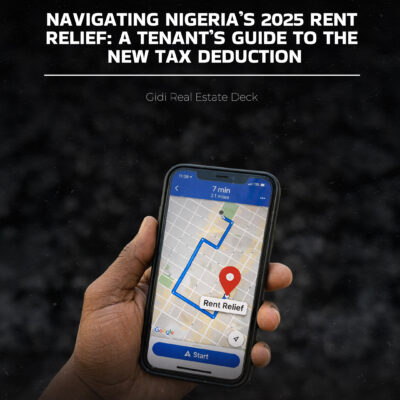According to the National Bureau of Statistics, the real estate sector now accounts for about 10.8% of Nigeria’s GDP, a leap from roughly 6.2%, following the rebasing of Nigeria’s GDP.
Specifically, the rebased data show real estate output jumping from ₦10.5 trillion in 2023 (pre-rebase) to ₦30.7 trillion after rebasing and further to ₦41.3 trillion in 2024. This surge puts real estate as Nigeria’s third-largest economic sector, behind only crop production (agriculture) and trade. Notably, real estate has overtaken the oil and gas industry in size, a symbolic shift in an oil-centric economy.
Overall, Nigeria’s total GDP was revised upward by over 30% (to ₦372.8 trillion for 2024), indicating a much larger economy than previously recorded and confirming that housing and property play a far bigger role than once thought.
What’s Behind Real Estate’s Boom?
Nigeria’s population of over 200 million, projected to become the world’s third-largest by 2050, is fueling an explosive housing demand, especially in cities. Rapid urbanization and a rising middle class have spurred the construction of new residential estates, high-end apartments, office complexes, and shopping centers in major hubs like Lagos and Abuja. Investments in housing and urban infrastructure are pouring in, with developers capitalizing on the need for both affordable homes and upscale properties in fast-growing city centers.
This was evident in early 2025 when real estate output surged by 80% in one quarter, buoyed by a wave of new housing and commercial projects. Industry experts say the sector’s resilience underlies its performance. Even during economic downturns, property tends to hold value as a store of wealth in Nigeria’s high-inflation environment.
Moreover, housing has a powerful multiplier effect: construction and real estate activity stimulate demand for cement, steel, glass, and other materials, while creating jobs for service-based sectors.
Future Outlook: Potential and Persistent Challenges
With its new status, Nigeria’s real estate sector holds vast investment potential, but unlocking that promise will require overcoming significant shortcomings.
On the positive side, the acknowledgment of real estate as an economic powerhouse can attract more institutional investment and policy support.
Stakeholders are already heralding the sector’s job creation capacity and its role in wealth creation beyond oil.
There is scope for expansion in housing development (particularly in bridging the 20+ million unit housing deficit), modern shopping and office spaces, and even new cities to accommodate urban spillover. Government housing initiatives and policy reforms, if sustained, could further boost the sector’s growth and make it more accessible to investors and homebuyers alike.
However, several structural challenges could slow down this momentum. The real estate industry in Nigeria has long been plagued by weak regulation and market informality, which have enabled malpractices to fester. Sector experts lament the prevalence of “quacks,” unregistered or unethical agents and developers, whose fraudulent schemes have burned investors and eroded public trust.
In markets like Lagos, for instance, it’s not uncommon to hear of scam property deals or rogue builders, an outcome of insufficient oversight. There is currently no single unified regulatory body enforcing standards for realtors and developers nationwide, a gap that encourages quackery and inconsistent practices. Calls have been made for formal licensure exams and professional certifications to distinguish genuine practitioners from charlatans in the industry.
Regulatory bottlenecks are another concern. Acquiring land titles and development permits remains a cumbersome affair. Obtaining a Certificate of Occupancy (C of O) can take years in some cases.
These bureaucratic delays not only discourage investment but also promote unofficial routes that undermine transparency. Additionally, Nigeria lacks a centralized housing data system or comprehensive property registry, making it difficult to assess market supply, demand, and prices accurately.
Recent events like sudden demolition drives or land policy changes have also jolted investor confidence, underscoring the importance of clear and consistent government policies.
In sum, the rise of real estate to the top echelon of Nigeria’s economy is a significant development, signaling a welcome broadening of the country’s growth drivers. This trend spotlights the immense opportunities in housing and property.
Yet, realizing the full potential of Nigeria’s real estate boom will require a dispassionate look at its pitfalls. Stakeholders must address regulatory gray areas, enforce professionalism to eliminate fraud, invest in reliable data systems, and streamline approvals to create an environment that enables the sector to thrive sustainably.
The good news is that the government and industry players are increasingly aware of these issues, and reforms are on the agenda.
If tackled head-on, Nigeria’s real estate sector can continue its positive trajectory, enhancing the GDP, creating jobs, and improving living standards, while shedding the inefficiencies and vices that have long hindered its growth.
Author: Olowora Olawale
Brand and Communications Manager,
Gidi Real Estate Investment Limited







